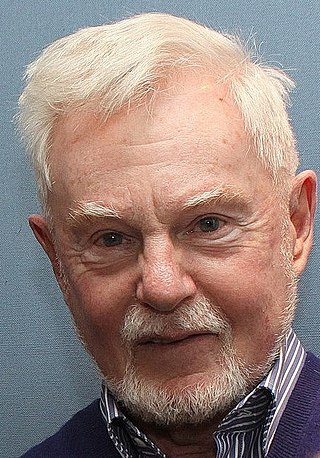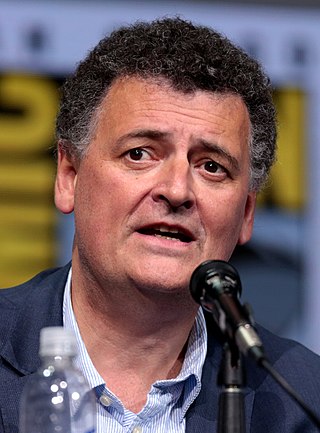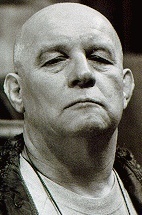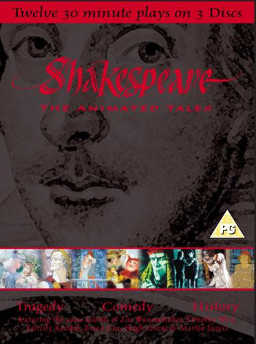Related Research Articles

Sir Kenneth Charles Branagh is a British actor and filmmaker. Branagh trained at the Royal Academy of Dramatic Art in London and has served as its president since 2015. He has won an Academy Award, four BAFTAs, two Emmy Awards, a Golden Globe Award, and an Olivier Award. He was appointed a Knight Bachelor in the 2012 Birthday Honours. He was made a Freeman of his native city of Belfast in January 2018. In 2020, he was listed at number 20 on The Irish Times list of Ireland's greatest film actors.

Sir David Courtney Suchet is an English actor known for his work on British stage and television. He portrayed Edward Teller in the television serial Oppenheimer (1980) and received the RTS and BPG awards for his performance as Augustus Melmotte in the British serial The Way We Live Now (2001). International acclaim and recognition followed his performance as Agatha Christie's detective Hercule Poirot in Agatha Christie's Poirot (1989–2013), for which he received a 1991 British Academy of Film and Television Arts (BAFTA) nomination.

Sir Derek George Jacobi is an English actor. Jacobi is known for his work at the Royal National Theatre and for his film and television roles. He's received numerous accolades including a BAFTA Award, two Olivier Awards, two Primetime Emmy Awards, two Screen Actors Guild Awards, and a Tony Award. He was given a knighthood for his services to theatre by Queen Elizabeth II in 1994.

The BBC Television Shakespeare is a series of British television adaptations of the plays of William Shakespeare, created by Cedric Messina and broadcast by BBC Television. Transmitted in the UK from 3 December 1978 to 27 April 1985, it spanned seven series and thirty-seven episodes.

Steven William Moffat is a Scottish television writer, television producer and screenwriter. He is best known for his work as showrunner, writer and executive producer of the science fiction television series Doctor Who and the contemporary crime drama television series Sherlock, based on Sir Arthur Conan Doyle's Sherlock Holmes stories. In the 2015 Birthday Honours, Moffat was appointed Officer of the Order of the British Empire (OBE) for his services to drama.

Brian Glover was an English actor and writer. He worked as a teacher and professional wrestler before commencing an acting career which included films, many roles on British television and work on the stage. His film appearances include Kes (1969), An American Werewolf in London (1981) and Alien 3 (1992).

The Keys of Marinus is the fifth serial in the British science fiction television series Doctor Who, which was first broadcast on BBC TV/BBC1 in six weekly parts from 11 April to 16 May 1964. Written by Terry Nation and directed by John Gorrie, the serial takes on a "mini-adventures" format, in which the First Doctor, his granddaughter Susan Foreman, and her teachers Ian Chesterton, and Barbara Wright search for four keys to restore the Conscience of Marinus, a computer which maintains law and order. The group travel to two cities, a jungle, and an icy wasteland in search of the keys.

Doomwatch is a British science fiction television programme produced by the BBC, which ran on BBC1 between 1970 and 1972. The series was set in the then present day, and dealt with a scientific government agency led by Doctor Spencer Quist, responsible for investigating and combating various ecological and technological dangers.

John Paton Laurie was a Scottish actor. In the course of his career, Laurie performed on the stage and in films as well as television. He is perhaps best remembered for his role in the sitcom Dad's Army (1968-1977) as Private Frazer, a member of the Home Guard.

David John Tennant is a Scottish actor. He rose to fame for his role as the tenth incarnation of the Doctor in the BBC sci-fi series Doctor Who, returning to the show as the fourteenth incarnation of the character in 2022. His other notable roles include Giacomo Casanova in the BBC comedy-drama serial Casanova (2005), Barty Crouch Jr. in the fantasy film Harry Potter and the Goblet of Fire (2005), Peter Vincent in the horror remake Fright Night (2011), DI Alec Hardy in the ITV crime drama series Broadchurch (2013–2017), Kilgrave in the Netflix superhero series Jessica Jones (2015–2019), Crowley in the Amazon Prime fantasy series Good Omens (2019–present), and Phileas Fogg in Around the World in 80 Days (2021).
Eamonn Roderique Walker is an English film, television, and theatre actor. In the United States he is known for playing Kareem Saïd in the HBO television series Oz, for which he won a CableACE Award, and Chief Wallace Boden on Chicago Fire and other shows within the Chicago franchise. In the United Kingdom, his notable roles have included Winston in the 1980s BBC series In Sickness and in Health, PC Malcolm Haynes in The Bill and John Othello in the 2001 ITV1 production of Othello.
Louise Elizabeth Goddard professionally known as Liza Goddard, is an English television and stage actress, best known for her work in the 1970s and 1980s.

Shakespeare: The Animated Tales is a series of twelve half-hour animated television adaptations of the plays of William Shakespeare, originally broadcast on BBC2 and S4C between 1992 and 1994.
David Hugh Jones was an English stage, television and film director.
David Weston is an English actor, director and author. Since graduating from the Royal Academy of Dramatic Art (RADA) in 1961 he has acted in numerous film, television and stage productions, including twenty-seven Shakespeare plays and prominent guest roles in two Doctor Who serials. With Michael Croft, he was a founder member of the National Youth Theatre. Much of his directing work has been for that organisation; he has directed also at the Regent's Park Open Air Theatre and a number of other theatres in London. He wrote and narrated a series of non-fiction audio books, including Shakespeare His Life and Work, which won the 2001 Benjamin Franklin Award for best audio non-fiction book.
Alan James Gwynne Cellan Jones was a British television and film director. From 1963, he directed over 50 television series and films, specialising in dramas.
Marc Wilkinson was an Australian-British composer and conductor best known for his film scores, including The Blood on Satan's Claw, and incidental music for the theatre, most notably for Peter Shaffer's The Royal Hunt of the Sun. His compositional approach has combined traditional techniques with elements of the avant-garde. After residing for most of his life in the United Kingdom, he retired from composition and lived in France.

The first season of British science fiction television programme Doctor Who was originally broadcast on BBC TV between 1963 and 1964. The series began on 23 November 1963 with An Unearthly Child and ended with The Reign of Terror on 12 September 1964. The show was created by BBC Television head of drama Sydney Newman to fill the Saturday evening timeslot and appeal to both the younger and older audiences of the neighbouring programmes. Formatting of the programme was handled by Newman, head of serials Donald Wilson, writer C. E. Webber, and producer Rex Tucker. Production was overseen by the BBC's first female producer Verity Lambert and story editor David Whitaker, both of whom handled the scripts and stories.
There have been numerous on screen adaptations of Shakespeare's The Taming of the Shrew. The best known cinematic adaptations are Sam Taylor's 1929 The Taming of the Shrew and Franco Zeffirelli's 1967 The Taming of the Shrew, both of which starred the most famous celebrity couples of their era; Mary Pickford and Douglas Fairbanks in 1929 and Elizabeth Taylor and Richard Burton in 1967. On television, perhaps the most significant adaptation is the 1980 BBC Television Shakespeare version, directed by Jonathan Miller and starring John Cleese and Sarah Badel.
Donald McWhinnie was a BBC executive and later a radio, television, and stage director.
References
- ↑ Muir, John Kenneth (2015). A Critical History of Doctor Who on Television. McFarland. p. 86. ISBN 9781476604541.
- ↑ Baade, Christina L.; Deaville, James Andrew (2016). Music and the Broadcast Experience: Performance, Production, and Audience. Oxford University Press. p. 111. ISBN 9780199314713.
- 1 2 Croall, Jonathan (2011). John Gielgud: Matinee Idol to Movie Star. A&C Black. p. 534. ISBN 9781408131077.
- ↑ Shubik, Irene (2000). Play For Today: The Evolution of Television Drama. Manchester University Press. pp. 42–56. ISBN 9780719056871.
- ↑ "Tales of the Unexpected : The Sound Machine (1981) - John Gorrie | Synopsis, Characteristics, Moods, Themes and Related | AllMovie" – via www.allmovie.com.
- ↑ Willis, Susan (1991). The BBC Shakespeare Plays: Making the Televised Canon. UNC Press. p. 18. ISBN 9780807843178.